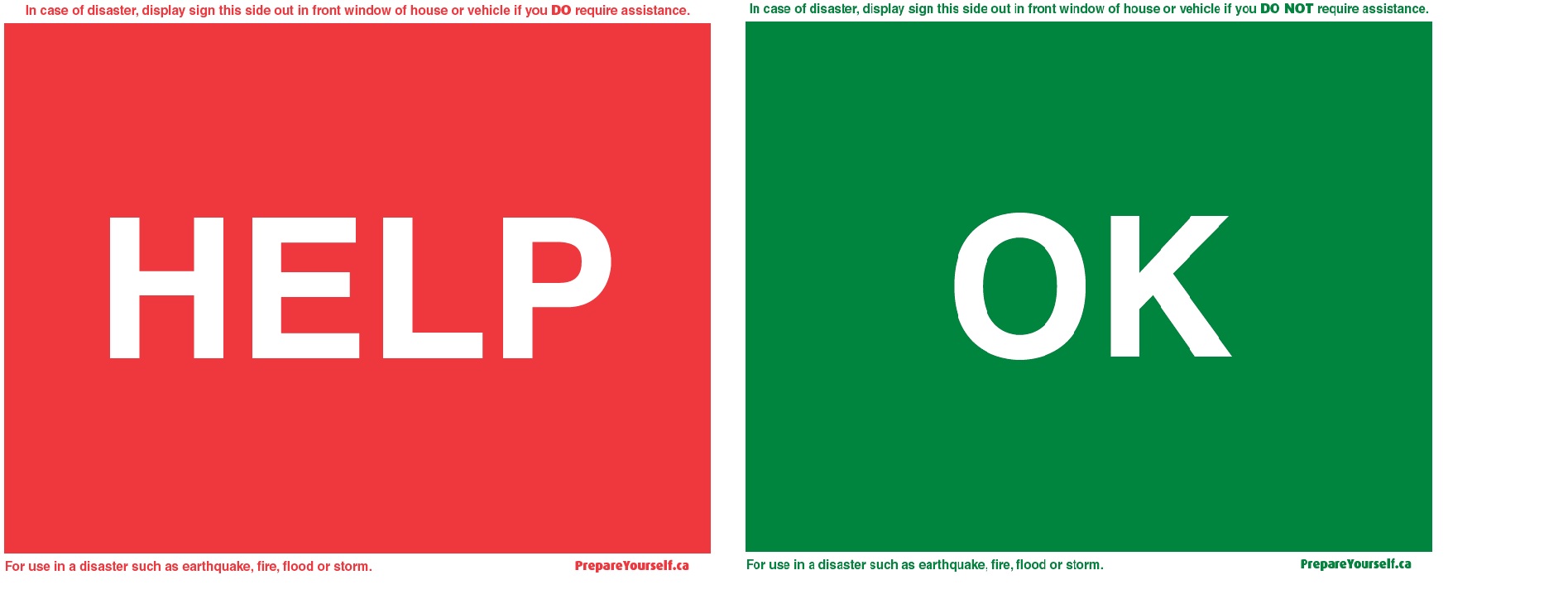You will need basic supplies in an emergency as you cannot rely on important services like water, phone and electricity. Having essential items will lessen the impact. Be ready to live off your kit at home for at least seven days. Ensure everyone in your household knows where the kit is kept. Get started with this preparedness kit video.
At home
- Water – 4 litres of water per person or pet, per day. 2 litres for drinking, 2 litres for hygiene and cooking.
- Food – Set aside food that won’t spoil – things like canned food, energy bars and dried fruits. Replace once a year before they expire. Remember a can opener!
- Flashlight and radio – Wind-up radios and flashlights are essential.
- First aid kit – Make your own or buy one. Keep it with your other emergency supplies.
- Special items – Include prescription medications, infant formula, pet food and equipment for people with disabilities.
- Whistle – To signal for help.
- Blankets – Sleeping bags or Mylar blankets are also great to keep you warm.
- Other essential items – Cash in smaller bills, coins and toiletries.
- Assemble your supplies and your family’s Emergency Plan. Prepare a plan that includes out-of-area contact information and family meeting locations.
Grab and Go Bag (evacuation)
In case of sudden evacuation, personalize a bag for each member of your family, including infants and pets. Provide essential items for up to 24 hours. Store supplies in a backpack near the front door. Pack what you can comfortably carry. Remember your cell phone and charger.
At work
If something happens while you are at work do you have supplies with you? Do you have a comfortable pair of shoes and clothing to change into? See an example "work kit" in the video below.
Kids
Our kids depend on us everyday, but especially in an emergency. Do you have familiar items, toys, food and snacks to help make a scary situation less chaotic?
Pets
Don't forget to plan for your pets in an emergency, they are part of our families too. For more information on packing a kit for your pets, visit our Planning for Pets page.
Older adults
Whether building your own kit or preparing for loved ones, have ready the supplies, medications and information that will be needed following an emergency. For more tips, visit our Planning for Older Adults page.
Vehicle kit
Emergencies can happen at any time, when you are anywhere. Be prepared with a kit when you travel in your vehicle and have supplies to help sustain you and keep you comfortable. Keep your fuel tank at least half full at all times. Let us help you Get Your Kit Together - Vehicle.
HELP / OK sign
Print HELP / OK signs for each of your kits. If our community is impacted by an event, place the sign in your window indicating you are OK or need HELP. This assists first responders, as well as neighbours who may be our first source of support and help in a major event.
Storing Supplies
- Using a wheeled suitcase or sports bag helps you to move your kit. If you store your kit outside or in a shed, use a waterproof container.
- Keep the kit away from household chemicals and mechanical rooms. An ideal spot is near an exterior door where it can be accessed.
- Make sure your kit is handy and make a habit of accessing it. This will help you stay familiar with the contents and help you remove and replace items with a shelf life.
- Store medications, cash and important documents in an external pouch or sealable bag so you can quickly and easily get to them. Keep items current.
Kits on a Budget
- Many kit items are already in your home. Instead of buying a kit, create your own.
- Only buy items you need.
- Store what you can today and gather other items bit by bit. Only store food items that your family eats on a day-to-day basis. Routinely eat stored items and immediately replace with recent purchases. This ensures that during an emergency your kit is stocked with familiar foods and that there is less wastage of food past its shelf life.
- Buy extra items when they are on sale.
- If you have allergies or dietary sensitivities, consider learning how to pickle, can or preserve food.



